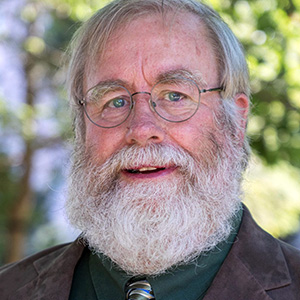Accreditation: Participant perspectives, in triplicate
The number of baccalaureate programs accredited by the American Society for Biochemistry and Molecular Biology has grown steadily. By the end of 2019, just six years after the accreditation program began, the number of accredited programs likely will reach the century mark.
Despite the program’s progress, many potential participants still ask, “Why should our program become accredited?”
 Jason Pough, Tony Rivas, and Khoa Tran, all undergraduates at Hampden-Sydney College in Virginia, work on a summer project designed around the proteomic analysis of mucus from local fish species.Hampden-Sydney College
Jason Pough, Tony Rivas, and Khoa Tran, all undergraduates at Hampden-Sydney College in Virginia, work on a summer project designed around the proteomic analysis of mucus from local fish species.Hampden-Sydney College
We have addressed this question in three ways. The first was via a survey of accreditation stakeholders recently published in the journal Biochemistry & Molecular Biology Education. The second was the recent publication of a letter describing details of the program in the journal CBE-Life Sciences Education. The third was by reaching out to representatives of three diverse accredited programs to learn how ASBMB accreditation has affected their programs:
Douglas McAbee of California State University Long Beach, a large (enrollment 37,000), public, master’s granting institution on the West Coast;
Michael Wolyniak of Hampden-Sydney College, a small (enrollment 1,100), private, primarily undergraduate institution in the mid-Atlantic region; and
Paul Black and Erin Sayer of the University of Nebraska, a large (enrollment 25,000), public, research-intensive university in the Midwest.
Overall, these programs reported the following benefits of accreditation:
| • | the focus on concept-based education in the accreditation application helps them critique and improve their programs; |
| • | guidelines from a national society help them strengthen the programs at their institution; and |
| • | accreditation of the program and certification of students through a common exam help create assessments for internal and external use. |
On the facing page, in chart form, are their more detailed answers to our questions.
Want to learn more about the ASBMB accreditation program? Go to the ASBMB accreditation page.

Enjoy reading ASBMB Today?
Become a member to receive the print edition four times a year and the digital edition monthly.
Learn moreFeatured jobs
from the ASBMB career center
Get the latest from ASBMB Today
Enter your email address, and we’ll send you a weekly email with recent articles, interviews and more.
Latest in Careers
Careers highlights or most popular articles

Creating change in biochemistry education
Pamela Mertz will receive the ASBMB William C. Rose Award for Exemplary Contributions to Education at the ASBMB Annual Meeting, March 7-10 in Washington, D.C.

Trainee mentorship as immortality
Suzanne Barbour will receive the ASBMB Sustained Leadership Award at the ASBMB Annual Meeting, March 7-10 in Washington, D.C.

Upcoming opportunities
Join us Feb. 5! The monthly ASBMB Transcription Webinars aim to facilitate knowledge exchange and collaboration among researchers in the fields of transcription, chromatin and epigenetics.

Life in four dimensions: When biology outpaces the brain
Nobel laureate Eric Betzig will discuss his research on information transfer in biology from proteins to organisms at the 2026 ASBMB Annual Meeting.

Redefining excellence to drive equity and innovation
Donita Brady will receive the ASBMB Ruth Kirschstein Award for Maximizing Access in Science at the ASBMB Annual Meeting, March 7–10, just outside of Washington, D.C.

Upcoming opportunities
Calling all biochemistry and molecular biology educators! Share your teaching experiences and insights in ASBMB Today’s essay series. Submit your essay or pitch by Jan. 15, 2026.


